BGC Name Caught in Alleged Forex Scam
Abstract:Several traders have recently reported issues involving the name of forex broker BGC. It is still unclear whether BGC itself is directly involved or if scammers are illegally using the company’s brand to trick victims. Either way, the losses are real, and the number of complaints is growing.
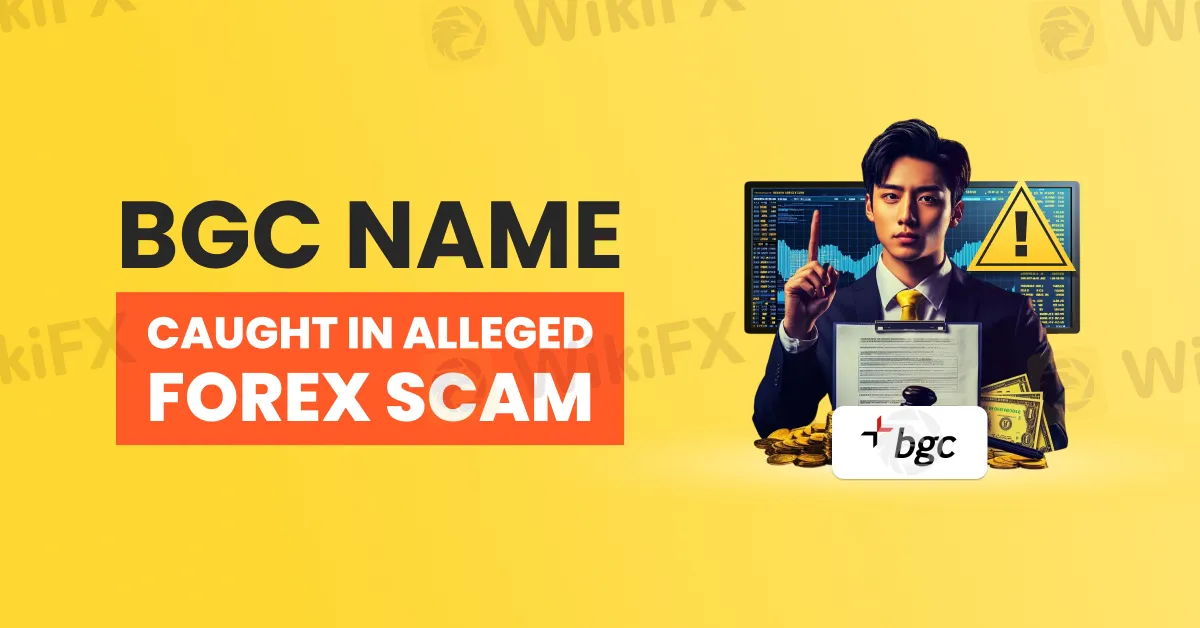
Several traders have recently reported issues involving the name of forex broker BGC. It is still unclear whether BGC itself is directly involved or if scammers are illegally using the companys brand to trick victims. Either way, the losses are real, and the number of complaints is growing.
According to multiple reports, traders were first introduced to the opportunity through social platforms like LINE and Facebook. These online groups were moderated by individuals using names such as Li Chengzong, Yang Xinhong, and Yang Jiaxiang. These individuals presented themselves as trading experts and gained the trust of group members by offering seemingly accurate stock tips and investment advice.
Once a level of trust was built, members were invited to join private or paid groups, where they were encouraged to take part in forex trading. The trades were to be carried out using USDT, a type of cryptocurrency that is fast and convenient but also difficult to trace or recover once transferred. The platforms provided to these users looked like they were affiliated with BGC, but later turned out to be fake copies.
Victims say they were guided step-by-step by these so-called trading mentors or customer support representatives. They were shown how to register on the platform, deposit USDT into a given wallet address, and begin trading. Most trades were focused on the EUR/USD forex pair. Each position required 5,000 USDT, along with a 200 USDT transaction fee, and users were promised a return of between 5% and 15% per trade.
While everything seemed legitimate in the beginning, problems began when traders attempted to withdraw their profits. Requests for withdrawal were either delayed or ignored. Users were told various reasons for the delay, such as problems verifying wallet details, blockchain congestion, or ongoing system maintenance. Even after waiting days or weeks, the money never arrived.
Over time, customer support stopped replying altogether. Many users were removed from group chats, and the moderators who once seemed helpful and reliable disappeared without a trace. Some victims were even told that depositing more money would speed up the withdrawal process, or that paying a one-time fee would unlock a faster service, but these efforts led nowhere. The promised funds were never returned.
Many victims tried to confirm the broker‘s legitimacy by checking BGC’s licences, such as those issued by the UK‘s Financial Conduct Authority (FCA) or South Korea’s Financial Supervisory Service (FSS). While BGC does appear to hold valid registrations, scammers could be took advantage of this by copying the companys name, website design, and branding to create convincing fake platforms.
This tactic is becoming more common. Scammers know that many traders will be reassured if they see a well-known brokers name and a website that looks professional. But just because a company is licensed does not mean that every website using its name is genuine.
The financial losses reported in these cases are significant. One trader said they lost nearly NT$170,000 (more than USD 5,000), while another group estimated total losses of up to NT$3 million, or roughly USD 90,000. These are not small sums, and many of the affected individuals now face a long road to recovery, with limited chances of getting their money back.
At this point, it is still unclear whether BGC has any direct connection to these fraudulent activities or whether its name has been misused without permission. Regardless, the damage has already been done, and traders should take extra care before depositing funds.

If you are planning to trade with BGC or any other broker, it is important to confirm the platform‘s legitimacy before taking any action. Always double-check the website address and make sure it matches the official URL. Reach out to customer support only through the contact details listed on the broker’s verified website. Do not trust links, apps, or login portals shared by individuals or in private groups. Be cautious of anyone promising guaranteed profits or unusually high returns in a short period of time.
Scams like these are becoming more frequent, especially in the world of online trading and cryptocurrency. Even if a broker is licensed and regulated, that doesnt protect you if you are dealing with a fake version of their platform. Criminals are getting smarter, and the best defence is being alert and well-informed.

Read more
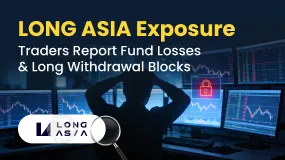
LONG ASIA Exposure: Traders Report Fund Losses & Long Withdrawal Blocks
Long Asia Group, a Saint Vincent and the Grenadines-based forex broker, has come under increasing scrutiny as a growing number of traders report troubling experiences with the broker’s operations. User feedback highlights recurring issues such as delayed or blocked withdrawals, sudden communication breakdowns, and a lack of clear accountability once funds are deposited. Several traders claim that while small withdrawals may initially go through, larger payout requests often face unexplained obstacles. More concerning are allegations suggesting that the broker may no longer be operating transparently, with users reporting prolonged silence, unresolved complaints and suspected fund mishandling. These patterns have raised serious questions about Long Asia Group’s reliability and overall legitimacy, prompting traders to exercise extreme caution before engaging with the broker. For more details, keep reading this LONG ASIA review article, where we have elaborated on the traders’ pain wit
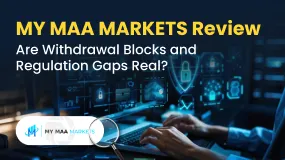
MY MAA MARKETS Review: Are Withdrawal Blocks and Regulation Gaps Real?
Has your MY MAA MARKETS forex trading experience been nothing short of a financial misery? Do you fail to gain the forex broker’s approval for fund withdrawals? Were you denied withdrawals on the grounds of fake accusations concerning system abuse and hedging? Does the broker deliberately cause you unwarranted slippage as you start executing winning trades? Do you feel the broker is unregulated? Your concerns seem genuine, as many traders have accused the broker of serious financial misconduct. In this MY MAA MARKETS review article, we have investigated some trader complaints. Take a look!
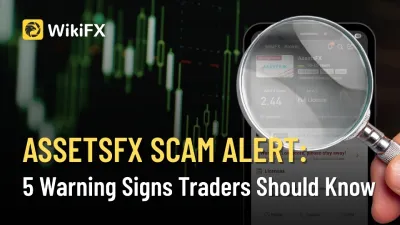
AssetsFX Scam Alert: 5 Warning Signs Traders Should Know
AssetsFX exposure reveals 5 scam‑like warning signs: unregulated operations, shaky fund safety, and alarming trader complaints you can’t afford to ignore.
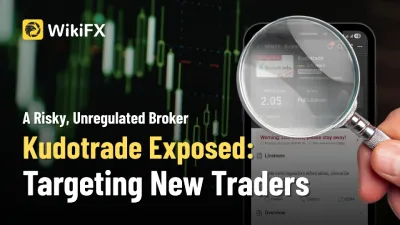
PRCBroker Exposed: Hong Kong Traders Say Profits Blocked, Withdrawals Refused
PRCBroker is accused of withholding $1.13M in profits and freezing withdrawals. Read the details and decide if this broker is right for you.
WikiFX Broker
Latest News
ECB and BoE Set to Hold Rates Amid Inflation Jitters
Gold Reclaims $4,800 After Historic Rout; Volatility Persists
Binary.com Review — Missing Trades & Reporting Issues Investigated
OpoFinance Withdrawal Issues: Traders Warn Others
Macro Strategy: Hard Assets Favored Over Consumption in Inflationary Environments
Central Bank 'Super Week': ECB, BoE, and RBA to Test FX Volatility
Precious Metals Capitulation: Gold Plunges 12% to Break $5,000 Support
EZINVEST Review: The Financial Abattoir Behind the CySEC Mask
SARB Pauses Rate Cycle at 6.75% Amid Lingering Uncertainty
Eurozone Resilience: Economy Defies Gloom as Germany Rebounds
Rate Calc

